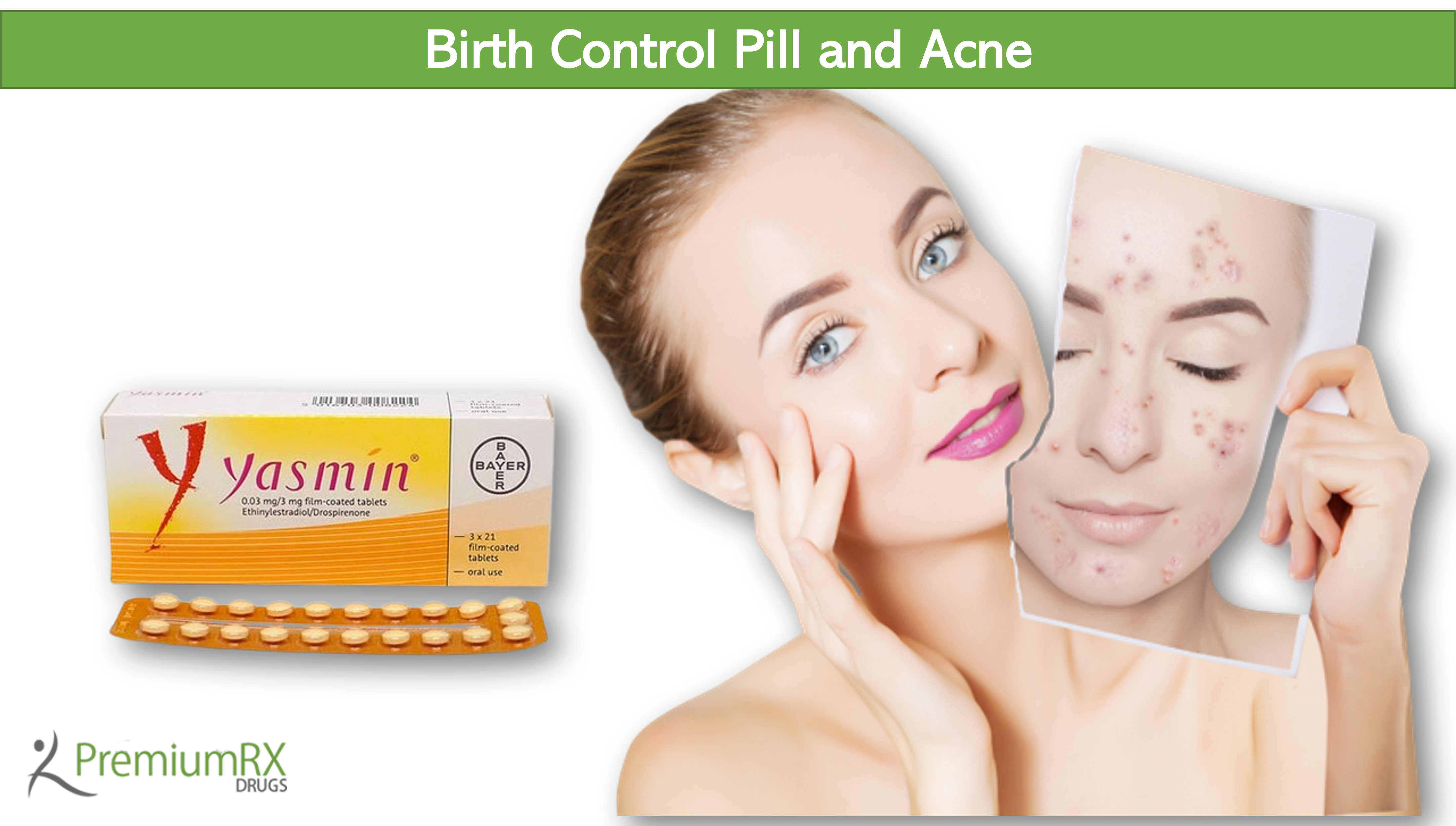Birth control pills can improve acne in women. Though typically safe, these estrogen-progestin pills aren’t suitable for everyone. Let’s find out more about birth control pills and acne and who can use them.
Acne can be mild to severe. If you have acne that can’t be controlled with topical therapies alone, you may wonder what else will work. Birth control can be an option for treating acne for women dealing with acne because these pills help regulate hormones that cause breakouts.
Birth Control Pills – Basics
Birth control pills, also known as oral contraceptives, are a group of medicines that prevent pregnancy. These pills carry the synthetic version of hormones estrogen and progesterone. These hormones prevent the ovaries from producing eggs and change the uterus lining. Females who receive oral contraceptives can have a menstrual cycle every twelve weeks, depending on the type of pill. The side effects of hormonal birth control pills like Yasmin 3mg commonly include weight gain, spotting between periods, mood changes, lighter periods, sore or swollen breasts, and nausea.
Oral contraceptives may increase your risk of other health problems. More serious side effects could indicate a complication. These side effects can include headaches, blurred vision, abdominal pain, chest pain, swelling of the thighs or legs. If you get any of these adverse effects, please speak to your doctor right away.
Speak to your doctor about your health history, which may affect your risk of birth control pills for acne.
Do not the oral contraceptives for acne if any of the following applies to you:
- You haven’t reached puberty
- Are you pregnant or trying to get pregnant
- You have a history of migraines
- You have a history of heart disease
- You have a history of blood clots
- You have high blood pressure and vascular disease
- You are over age 35 years, and you smoke
- you have a history of breast cancer, undiagnosed liver disease or abnormal uterine bleeding
Birth Control & Acne
There is a connection between acne breakouts and birth control, but mostly it’s for positive reasons. One of the major causes of acne is the presence of male sex hormones androgens. Androgens are present in both men and women. These hormones are extremely active during puberty, which is one of the reasons acne is common among teenagers. According to research studies, around 70 to 87 per cent of teenagers develops acne. Acne appears when androgens increase the size of the sebum glands, which further increases oil production. Oil, dirt, and dead skin cells trap hair follicles. This leads to the formation of blackheads, whiteheads, pimples, and other painful sores under the skin’s surface. Acne is more commonly occurs on the face, chest, shoulders, and back.
Oral Contraceptive as Acne Treatment
Birth control or oral contraceptives can be used as an acne treatment in women as they are known to control hormone changes. This means these pills cause a significant reduction in the amount of acne-causing androgens in the body. Over time, when used appropriately under a doctor’s supervision can result in clearer skin. Birth control pills may be an effective option if you have acne breakouts near your menstrual cycle. The pills that contain estrogen and progesterone are considered safe and effective in treating acne in women and adolescent girls. Your doctor may prescribe Yaz to improve acne. When you have been prescribed birth control pills to treat acne, you may be asked to continue to take them for a few months before your skin clears.
Decide what suits you
Birth control pills can be an effective way to control acne. The oral contraceptive may be for you to treat acne and take Yasmin pills. You should be aware of the pill’s side effects and how it responds. Discuss with your doctor about the alternative treatments if you develop moderate to severe side effects from oral contraceptives. You can explore more options if these pills dint works for you.
Marie
Latest posts by Marie (see all)
- Revize Micro Gel 0.025% | Uses, Price, Side effects - April 9, 2025
- What is Evalon Cream: How to Apply, Benefit, who Can Use - April 4, 2025
- Understanding Avanair 200 mg: A Comprehensive Guide - April 4, 2025




